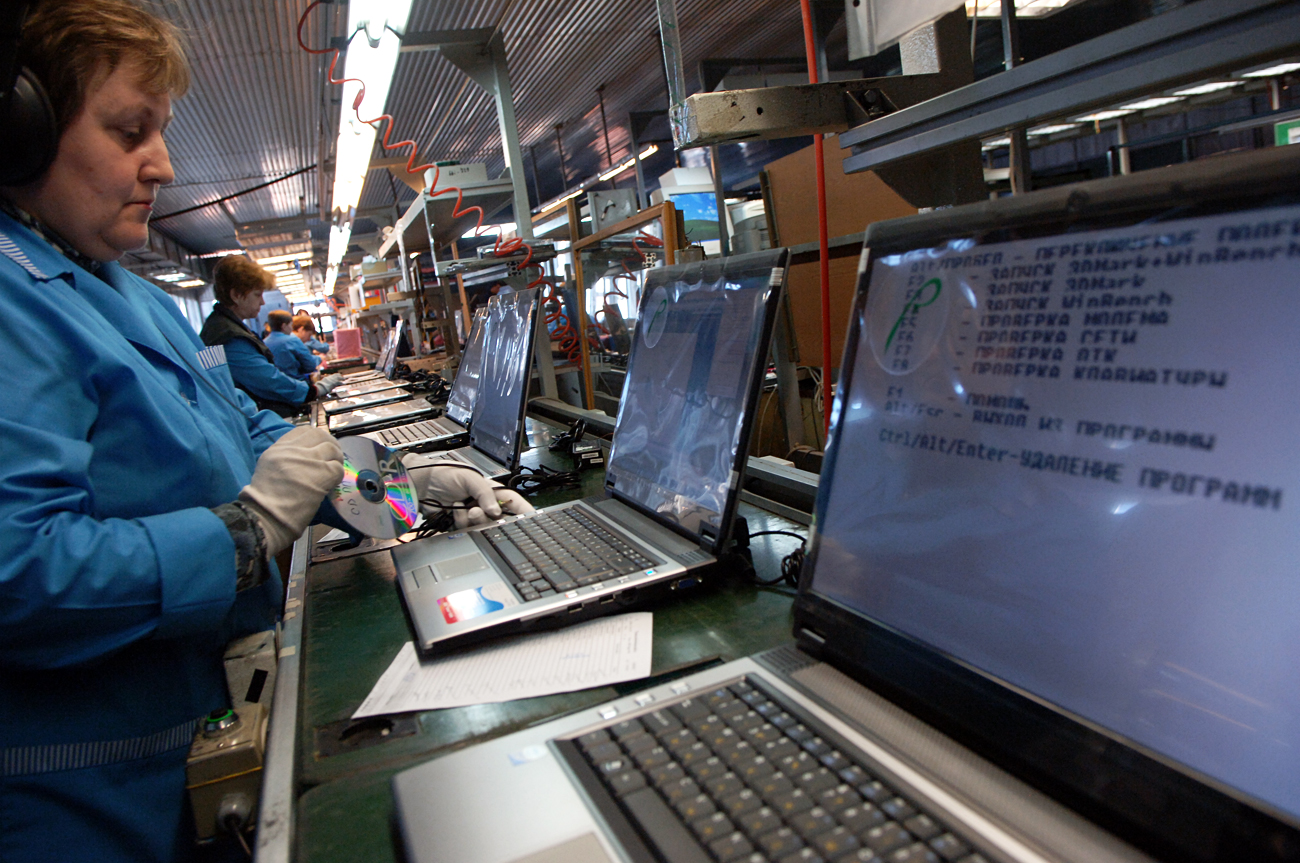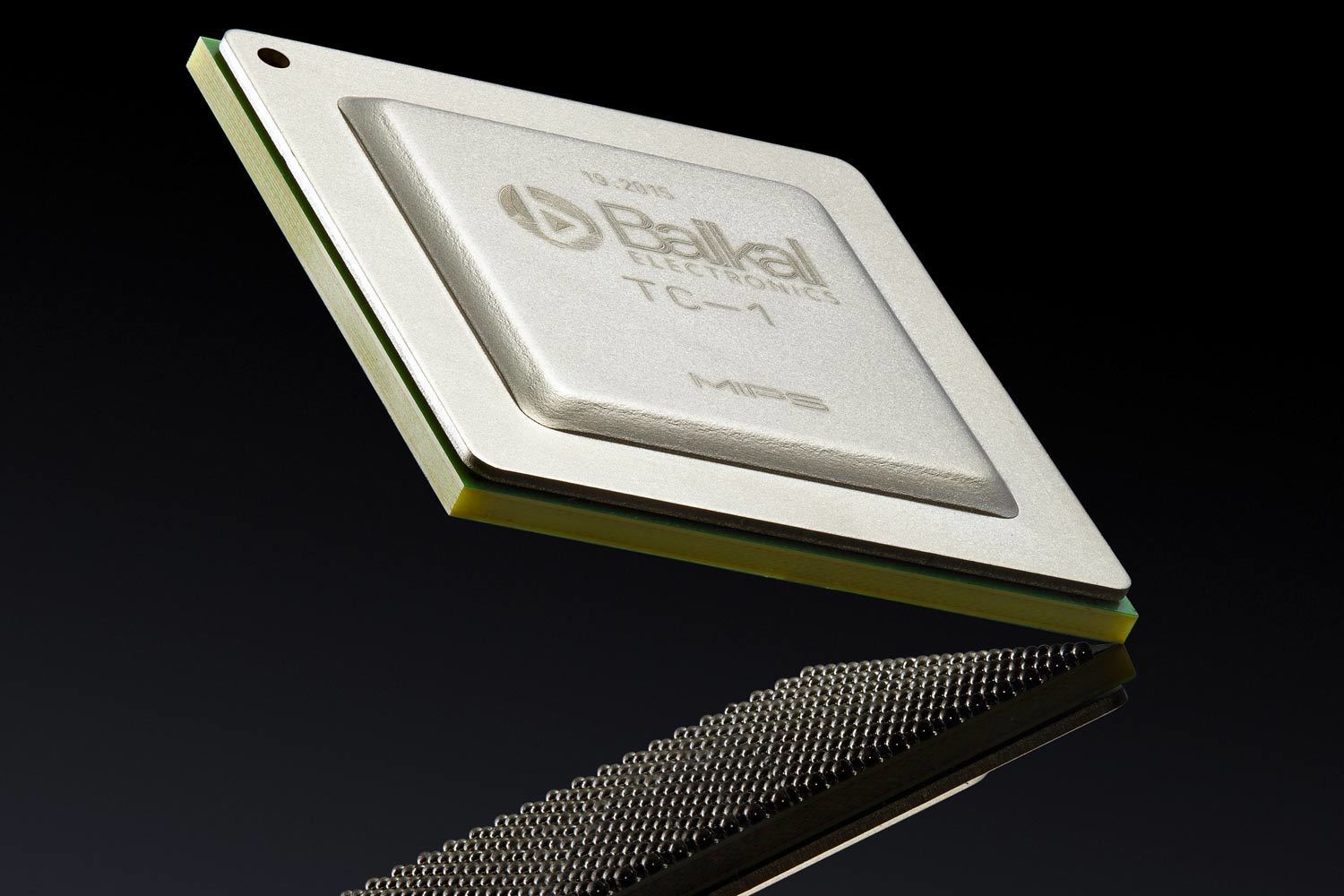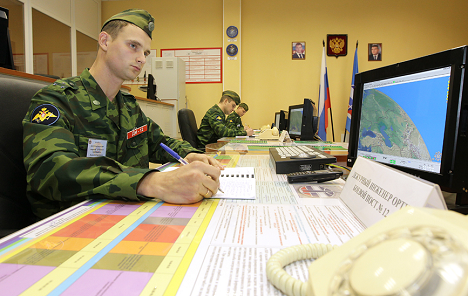Russian laptops protect against frost and shocks

The basic configuration of the laptop will come with the Linux operating system.
Grigory Sysoyev/TASSRussia’s Ministry of Industry and Trade has issued a grant of 150 million rubles to T-Platforms for a domestic ‘rugged laptop’ project. The newly designed laptops will work after falling into the water, at temperatures from -50 to +50 degrees Celsius, after suffering a heavy shock and under vibration. The company explained that there are actually two projects – one laptop will be created based on the Intel x86 processor, while the other will use the Baikal-M processor, made by the Russian company Baikal Electronics, an affiliate of T-Platforms.
The Ministry has approved the full name of the project as, “Development and production of a line of workstations in the ‘rugged laptop’ format based on the x86 processor and domestically manufactured processors”. The company explained that the laptop is being based on the Intel processor to make it easier for companies which already have this infrastructure to transition to the domestically-made equipment. Such laptops are needed by industrial companies, as well as by people working or living in “harsh conditions”.
“Rugged laptops can be used by companies operating in the oil and gas sector, drilling companies, geological expeditions, in manufacturing plants, in Siberia or in the forest. Because the most important thing in these areas is reliability and resistance to high and low temperatures, humidity, high electromagnetic fields – and the laptop must work also properly if dropped in water or, for example, on the rocks, under vibrations or strong shaking conditions,” explains Alexander Golub, Deputy Commercial Director of Business Development and Working with Strategic Partners at T-Platforms. “There is a very large segment of customers, who are accustomed to a particular programme, and migration for them will be difficult. For those who already have an established infrastructure, have purchased their equipment and software, in the next 3-4 years, the transitional period, they will need an Intel-based product, but the equipment itself will be an entirely domestic development.”
The basic configuration of the laptop will come with the Linux operating system, but it will also come installed with Windows 10, upon request of the customer. The total amount of the requested subsidy is 450 million rubles up to 2019; the remaining funds will be approved based on separate applications in subsequent periods. The company received 150 million rubles from the federal budget this year. According to the official documents, four patents will be registered during the implementation of this project, and 18 new high-tech jobs will be created.
Svetlana Apollonova, Chairman of the Board of Directors of the Association of Manufacturers of Electronic Equipment and Appliances, believes that domestic production of laptops for the industrial sector is very important, both from an economic point of view, and from the point of view of information security.
“In certain segments, such computing equipment is definitely in demand; ‘industrial’ laptops are needed for exploration, oil and gas production, where difficult conditions exists, including the weather, but the question remains, of course, in the price – whether Russian laptops will be competitive with their foreign counterparts,” noted Apollonova. “If we are planning to develop our economy, we need to have our own technologies, and not just localize the manufacturing of imports, but actually produce our own equipment. The second important question is information security, using foreign software and foreign equipment can lead to man-made disasters, and here protection against terrorism is crucial.
According to the developers, building the laptops will take at least one year. The company is now waiting for processors to be delivered from the Baikal Electronics Company, but the project with the Intel chip has already been started.
The press service of Baikal Electronics explained that the first engineering samples will appear in the second half of next year, and then they will be sent to T-Platforms. The Baikal Electronics Company also received a grant of 400 million rubles from the Ministry of Industry and Trade for 2016 – to develop the Baikal-M processor.
First published in Russian by Izvestia.
All rights reserved by Rossiyskaya Gazeta.
Subscribe
to our newsletter!
Get the week's best stories straight to your inbox

